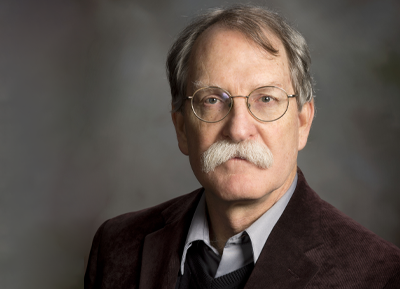Reflections on the Athenian Cavalry
Presented By
American School of Classical Studies
Hippos: The Horse in Ancient Athens
Speaker(s)
Glenn R. Bugh,
Virginia Tech University
Location
ASCSA Cotsen Hall - Hybrid Lectures, Anapiron Polemou 9, Athens 106 76Anapiron Polemou 9
Athens 106 76
The lecture will be in English
By registering you will be able to submit your questions through Q&A on Zoom.
** Guests attending Cotsen Hall events are required to wear a mask and to present valid COVID-19 vaccination certificates or certificates of recovery (valid for 180 days) along with ID.
About the lecture:
This talk will survey Athenian cavalry studies from the magisterial book by M.A. Martin, Les cavaliers athéniens in 1886 to the present. Martin made full use of the corpora of inscriptions available to him in the late 19th century, but he did not have access to the treasures yet to come from the Agora after the Americans began digging in 1931 (and the German School in the ancient cemetery [Kerameikos] since 1913). As the number of inscriptions multiplied, references to the Athenian cavalry naturally increased and American epigraphists labored to study and publish individual documents in Hesperia. In the 1960's cavalry studies built on these archaeological developments with the publication of J.K. Anderson's on Ancient Greek Horsemanship (1961); the discovery of an inscription near the Hephaisteion that documented the reduction of the canonical 1000-man Classical Athenian cavalry to a modest 200 troopers by the 280's; and the startling discovery by German excavators of hundreds of lead tablets in the Kerameikos that detailed the administration of the Athenian cavalry. In 1971 a smaller cache of 4th c. BC cavalry tablets was excavated in the Agora. The publication of new cavalry inscriptions from the early Hellenistic period found in the northwest quadrant of the Agora clearly point to the presence of the Hipparcheion, the cavalry headquarters, somewhere close by. The key to the upsurge of cavalry publications in the 1960's and 1970's is clearly to be found in the inscriptions uncovered in the major excavations in Athens; these would serve to triangulate traditional texts and material culture (e.g., the Parthenon frieze and hippic reliefs). The new epigraphical texts created a need for synthetic studies to integrate the new evidence into a broader historical narrative. By the late 1980's and early 1990's, two monographs on the Athenian cavalry had appeared, and soon thereafter several works on Greek cavalry from a military perspective. As long as there are excavations in Athens, new cavalry inscriptions will appear, most recently a Peloponnesian War-era cavalry relief discovered in the Metro excavations. This talk will conclude with a discussion of this new inscription and affirm the fundamental importance of epigraphy not only to Athenian cavalry studies but to Athenian prosopography. And the Hipparcheion remains the Holy Grail of Athenian cavalry studies.
About the speaker:
Glenn R. Bugh is associate professor of ancient history at Virginia Tech. He holds a PhD from the University of Maryland (1979) and has been a fellow at the American School of Classical Studies at Athens; the Institute for Advanced Study in Princeton; the Center for Hellenic Studies in Washington, D.C.; and a research scholar at the Hellenic Institute for Byzantine and Post-Byzantine Studies in Venice, Italy. Professor Bugh twice served as summer session director of the American School of Classical Studies at Athens (2000, 2011), and was the Elizabeth A. Whitehead Visiting Professor at the American School in 2004-2005. He has published many articles on cavalry topics and two books: The Horsemen of Athens (Princeton University Press, 1988) and The Cambridge Companion to the Hellenistic World (ed. Cambridge, 2006) as well as a revised edition of Kevin Andrews, Castles of the Morea (Princeton, 1953, 2007). His current research interests include: Hellenistic military institutions (especially ancient Greek cavalry); Greek mercenary cavalry (stratioti) in Renaissance Venice; and Venetian castles in the Peloponnese. Professor Bugh has also been a frequent teaching faculty at Virginia Tech’s Steger Center for International Scholarship in Riva San Vitale, Switzerland (1995-2010), and he taught at the University of Kent at Canterbury, England in 2014. Currently, he serves as Coordinator for International Education, European Programs in Virginia Tech's newly established Jean Monnet Center of Excellence. As a boy, he attended riding academies in Salzburg, Austria and Verona, Italy.